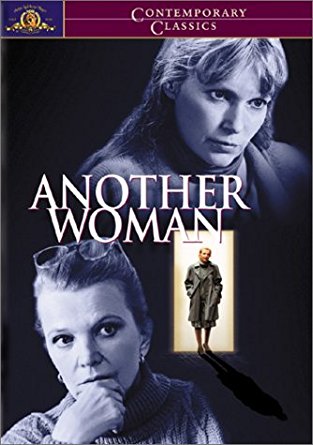One of Woody Allen’s most poignant efforts, speaks to aging and regrets
Reviewed by Brian R. Wright
 Before I launch into a review of this marvelous creative effort I want to preface things by repro-ducing an email sent in response to one of my co-workers who dismisses Allen’s films with one word: pedophile. Forget that the usage of that word includes many meanings: some innocent platonic affection for the young, some inappropriate attention, some literally forced sex. Then consider we live in a world that to be accused of something is to be guilty of it. What my coworker is really saying is that he doesn’t care how good or creative an individual is, and doesn’t care to know the truth in any event. To him it’s depravity by hearsay.
Before I launch into a review of this marvelous creative effort I want to preface things by repro-ducing an email sent in response to one of my co-workers who dismisses Allen’s films with one word: pedophile. Forget that the usage of that word includes many meanings: some innocent platonic affection for the young, some inappropriate attention, some literally forced sex. Then consider we live in a world that to be accused of something is to be guilty of it. What my coworker is really saying is that he doesn’t care how good or creative an individual is, and doesn’t care to know the truth in any event. To him it’s depravity by hearsay.
Here’s the note:
“Sifting thru the alleged sexual abuse information in Wikipedia, I’m not finding anything solid that Woody Allen is guilty of anything but (perhaps grossly) inappropriate behavior toward a minor. In the big custody case re: adopted girl Dylan the Connecticut team found “no evidence of sexual assault.” Although the judge ruled “grossly inappropriate,” Connecticut (btw this is all timeframe early 1990s) did not pursue molestation charges. Also, New York social services closed its own 14-month investigation stating “no credible evidence” to support allegation of abuse.
“Soon Yi and Allen are married now for more than 20 years. Some actresses have stated they regretted having worked with Allen. Others, like Diane Keaton, are close friends, and presumably supportive of his side of the story.
“Reading between the lines, I’m guessing Mia Farrrow and Dylan are Hollywood neurotic cases, they’ve managed to encourage a number of PC feminists to their cause, along with friends in publishing. Also I’m supposing that Woody is or was also neurotic in matters of sexual behavior in and around girls and teenage girls, in particular. No assault, no pene-tration, no forced sex. So IMHO much ado in celebrity culture about not much.”
Now onto the films, this one in particular
Among my ten best films are two by Woody Allen: Hannah and Her Sisters (1986) and Crimes and Misdemeanors (1989). Upon reflection, there could be half a dozen more. Why? Because he paints the universals of human existence in exact yet subtle hues. His satire disarms its subjects with a child’s innocent eyes rather than blinding everyone with with the least wisp of ham-handed ridicule. [Most if not all of Allen’s movies are written and directed by him.] We are drawn into his stories by, “Hey, that’s the sort of DEEP situation I find myself (or someone I love) in.” Then subconsciously, “I’m all eyes and ears.”
That’s the appeal of Another Woman, which, by the way, is a perfect title, though probably not for the reasons you would expect. Mia Farrow’s character is ‘another woman’ who serves mainly as the key external input to the ebb and flow of Gena Rowland’s character’s (Marion’s) friends and family. The conflict and the drama center on Marion. She is an ama-zingly accomplished dean of philosophy at an esteemed establishment women’s college, who has just reached her 50s, as have many of her entourage. Hence deeper reflection ensues for the lot of them. She, in particular:
“If someone had asked me when I reached my fifties to assess my life, I would have said that I had achieved a decent measure of fulfillment, both personally and professionally. Beyond that, I would say I don’t choose to delve.”
But life intrudes in several messy ways at this point, not the least of which is her beginning to wonder whether her extraordinary intellectual and personal, even cultural accomplish-ments—toward the end of the movie, Marion is out with friends dining, when a former student comes to her table and exclaims how Marion has “changed my life”—have been barricades against letting her true passions flow. Especially, those emotions that stir lust, children, and more. We are then led to flashbacks of her relationships with Marion’s father (John Houseman) and brother (Harris Yulin), as well as friends and lovers.
How will she go forward with her new, most profound self discoveries? So many of these filled with regret. Then a final scene of family love that brings tears to your eyes. There is none higher. Woody Allen delivers the magic of telling intimate moments—some yielding joy, some despair—on the Great Mandela of life. The movie Another Woman is one of his more obscure and unwatched ones. It shouldn’t be. Moreover, don’t wait until you’re 50 to appreciate its positive insights for one’s own life.
Finally, some of the best acting anyone is likely to see.
This post has been read 1060 times!

